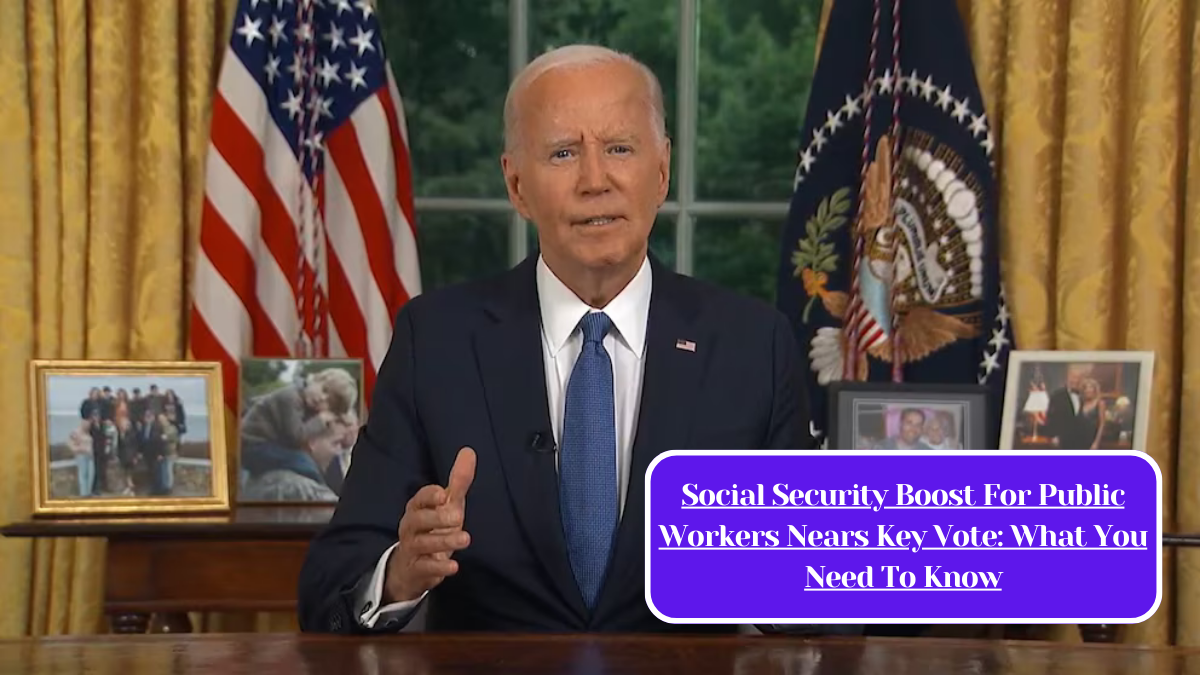As the debate around public worker benefits intensifies, a significant piece of legislation aimed at boosting Social Security for public employees is set to be voted on soon. This potential increase in benefits has garnered attention from various stakeholders, including lawmakers, public employees, and advocates for social justice. Here’s what you need to know about this critical development.
Background on the Legislation
The proposed legislation seeks to address longstanding inequities in the Social Security system, particularly affecting public workers. Many state and local government employees are not covered by Social Security due to provisions like the Windfall Elimination Provision (WEP) and the Government Pension Offset (GPO), which can significantly reduce their Social Security benefits. This has raised concerns about the financial security of public workers, particularly as they near retirement.
The bill aims to reform these provisions and provide a fairer benefit structure for public workers, ensuring that they receive the Social Security benefits they deserve based on their contributions.
Key Provisions of the Bill
- Repeal of WEP and GPO: One of the bill’s most critical aspects is the repeal of the WEP and GPO, which disproportionately affects public employees who have also worked in jobs covered by Social Security.
- Increased Benefits: The legislation proposes an increase in overall benefits for eligible public workers, aiming to close the gap between their retirement income and that of private-sector employees.
- Funding Mechanisms: The bill includes provisions for funding these increases, ensuring that the reforms are sustainable in the long run without placing an undue burden on taxpayers.
Implications for Public Workers
If passed, this legislation could significantly impact the financial well-being of millions of public employees. Many public workers face challenges in retirement due to lower pension payouts and reduced Social Security benefits. This bill could provide them with a much-needed financial boost, helping them maintain a stable standard of living during their retirement years.
Advocates’ Perspectives
Supporters of the bill argue that public workers deserve the same protections and benefits as their private-sector counterparts. They emphasize that these workers often dedicate their careers to serving their communities and should not face financial penalties for their choice of profession.
Opposition Concerns
On the other side of the aisle, some lawmakers express concerns about the potential costs of the proposed changes. Critics argue that the reforms could strain the Social Security system, which is already facing long-term financial challenges. They advocate for a more comprehensive approach to reforming Social Security that addresses the needs of all workers, not just specific groups.
Next Steps
As the key vote approaches, stakeholders are gearing up for a final push to rally support for the legislation. Public employees and their advocates are mobilizing to ensure that their voices are heard. The outcome of this vote could set a precedent for future reforms and impact the livelihoods of countless public workers.
The upcoming vote on the Social Security boost for public workers is a pivotal moment in the ongoing discussion about retirement benefits and financial security for state and local government employees. As the clock ticks down, it is crucial for all interested parties to stay informed and engaged in the process. Whether you are a public worker, a lawmaker, or a concerned citizen, this legislation has the potential to reshape the landscape of Social Security and provide much-needed support for those who serve our communities.












